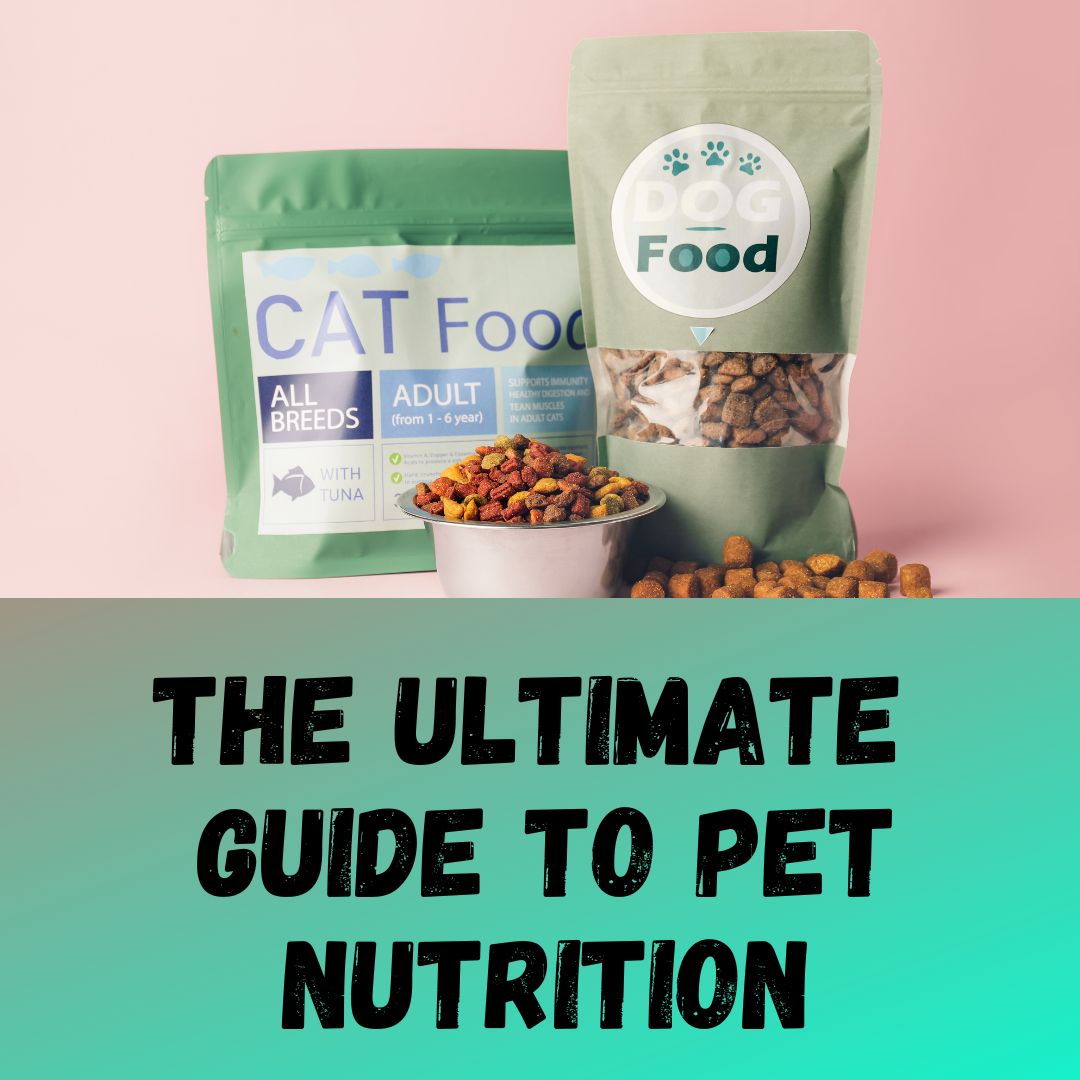Pets bring immense joy and companionship to our lives. As responsible pet owners, it is crucial to ensure their well-being and longevity.
One of the fundamental pillars of pet care is providing them with a balanced diet. In this comprehensive guide, we will delve into the importance of pet nutrition and shed light on the key components of a balanced diet for our furry friends.
Post Contents
The Significance of Pet Nutrition
Proper nutrition plays a vital role in our pets’ overall health and happiness. Just like humans, pets require a well-rounded diet to thrive.
A balanced diet provides the necessary nutrients, energy, and building blocks for growth, development, and maintenance of bodily functions. It strengthens their immune system, supports organ health, maintains a healthy weight, and enhances their quality of life.
For the sake of your pet’s nutritional health, you must keep careful tabs on the food you give it. Using a label maker online is an effective method of maintaining this order.
To keep track of the various types of food, the expiration dates, and the feeding instructions, you can make labels for your pet’s food containers that are aesthetically pleasing and informative.
These labels will help you stay on top of your pet’s feeding schedule and provide peace of mind that their nutritional needs are always being met.
Primary Components of a Balanced Diet
To understand pet nutrition better, let’s explore the main elements of a balanced diet.
Macronutrients
Proteins
Proteins, the basic building blocks of life, are essential for your pet’s growth, tissue repair, and enzyme and hormone synthesis. Premium animal-based proteins, such as lean meats, fish, and poultry, should be a staple of their diet.
Carbohydrates
They provide energy as well as fiber, which promotes digestive health. They are found in whole grains, fruits, and vegetables. Because cats’ ability to digest carbohydrates is limited, avoiding excessive carbohydrate consumption is integral for their health.
Fats
Fats provide concentrated energy and aid in the absorption of fat-soluble vitamins. Incorporating beneficial fats like those found in fish oil and flaxseed promotes a shiny coat, brain health, and optimal cellular function.
Micronutrients
Vitamins
Vitamins are needed for various physiological processes, such as immune function, bone development, and vision. Each vitamin plays a specific role, and a deficiency can lead to severe health issues. A balanced diet with various foods helps meet your pet’s vitamin requirements.
Minerals
Minerals are vital for strong bones, nerve function, and fluid balance. Calcium, phosphorus, iron, and zinc are some minerals that should be included in your pet’s diet. Provide them in appropriate quantities, as excess or deficiency can have adverse effects.
Water
Water is often overlooked but is a critical nutrient for pets, and it aids digestion, regulates body temperature, and facilitates eliminating waste products. Make sure your pet has access to a fresh and clean water supply at all times.
Choosing the Appropriate Nutrients for Your Beloved Companion
Picking the perfect nourishment for your furry friend can be daunting, given the many factors that come into play. To begin with, consider your pet’s age, breed, size, and energy expenditure, as these attributes influence their nutritional requirements.
Opt for premium-quality ingredients that furnish a well-rounded and wholesome meal, encompassing proteins, fats, carbs, vitamins, and minerals. Scrutinize the label for any synthetic preservatives, colorants, flavorings, and potential allergens.
Bear in mind your pet’s taste preferences and any dietary limitations or medical conditions they may have. Seek advice from your vet for individual guidance, and keep a close eye on your pet’s well-being and demeanor to confirm the suitability of the chosen diet for their specific needs.
Common Nutritional Issues in Pets
You can address and prevent common nutritional problems in your pet by being aware of them.
Obesity
Pet obesity is a common cause for concern because it can lead to health issues. Use moderation when feeding your pet, monitor how often they consume treats, and include regular exercise in their routine.
Allergies
Food allergies can cause respiratory symptoms, gastrointestinal problems, or skin problems. You need to identify and eliminate allergens from your pet’s diet. Your veterinarian can offer hypoallergenic substitutes or offer assistance with an elimination diet.
Dental Health
Dental disease and discomfort in your pets are brought on by poor oral hygiene. You can preserve their oral health by feeding them dental-specific diets, providing dental treats, and brushing their teeth frequently.
Digestive Disorders
Some pets may suffer from sensitive tummies or particular digestive issues. Your veterinarian may suggest specialized diets that are simple to digest and easy on the digestive system in these circumstances.
Conclusion
If you take the time to learn about your furry friend’s individual nutritional requirements and provide them with food that meets those needs, you can increase the likelihood that they will live long, happy lives.
Remember that your pet’s health and happiness depend on their diet, and we hope this article helps you make educated choices.

94% of pet owners say their animal pal makes them smile more than once a day. In 2007, I realized that I was made for saving Animals. My father is a Vet, and I think every pet deserves one. I started this blog, “InPetCare”, in 2019 with my father to enlighten a wider audience.
